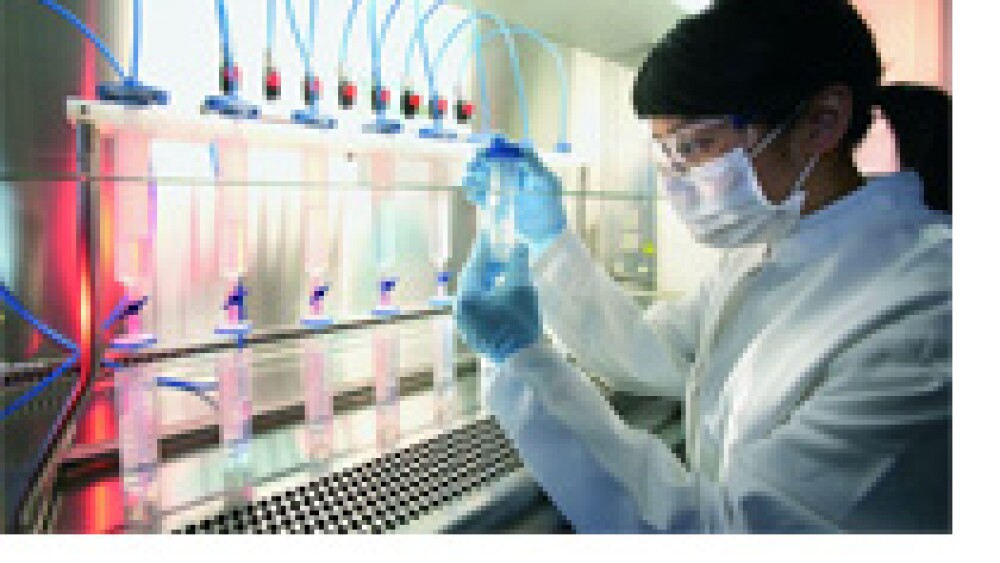February 6, 2015
By Mark Terry and Riley McDermid, BioSpace.com Breaking News Staff
A 30-year-old man who shot his father, the founder and chief investment officer of well-known biotech and health care investment hedge fund Wainscott Capital Partners Fund, pled not guilty Thursday to the charge of murder and staging the scene to look like a suicide.
“The defendant intentionally shot and killed a member of his own family,” said Manhattan District Attorney Cyrus Vance Jr. “He also possessed a private cache of ammunition and firearm attachments that might have enabled him to do even more tragic harm.”
Thomas Gilbert, Sr., 70, founder and chief investment officer of well-known biotech and health care investment hedge fund Wainscott Capital Partners Fund, was shot to death on Jan. 4 in Manhattan. New York City police have held Gilbert’s 30-year-old son, Thomas Gilbert, Jr., in connection with the death.
Rumors have swirled that Gilbert allegedly opened fire because his father had threatened to reduce his monthly spending allowance by $200. "[Gilbert Sr.] was cutting his allowance. He had been giving him $2,400 a month for rent and $600 for spending money, and he was cutting that to $400 a month for spending money,” a source told the New York Post. “They had argued about it before.”
According to reports, the two men had been arguing in the bedroom of Thomas Sr.’s East Side apartment at 3:30 p.m. After the shooting, Thomas Sr.’s wife found the body and called 911. She was reportedly not present at the time of the shooting.
The gun used to shoot Gilbert is a .40-caliber Glock. Police say the son left the gun at the apartment and allegedly fled after the shooting. Gilbert, Jr., was arrested in his W. 18th Street apartment around 10:45 p.m. on Jan. 4 after police in riot gear chopped down the front door.
Once inside, police found an additional two magazines of ammunition loaded with 17 rounds as well as a credit card skimmer device and 21 blank credit cards. The younger Gilbert was reportedly in severe debt and had no recent work history, said the police complaint.
On Thursday, Gilbert Jr.’s lawyer Alex Spiro was unsuccessful at shielding his client from news photographers, when New York State Supreme Court Justice Melissa Jackson rejected Spiro’s request to protect his client, saying the case was already too high profile to have any expectation of privacy.
A recent New York Times profile spoke to many friends and business partners who had known both men, and painted a portrait of an unbalanced, deeply troubled, sometimes violent Gilbert. Jr.
Hedge Fund Alert newsletter said in August 2013 that Wainscott saw a return of 25 percent in 2012 and 17 percent in 2013.Wainscott Capital Partners focuses mostly on biotechnology and healthcare. The fund manages more than $200 million. Before founding Wainscott, Gilbert was co-founder of Syzygy Therapeutics, described as a “private equity biotech asset acquisition fund, which focused on identifying and investing in late-stage biotech drug candidates.” Gilbert also founded and ran Knowledge Delivery Systems, Inc. from 2000 through 2010.
Wainscott is perhaps best known in the sector for its many investments in early or seed-stage, innovative biotech companies, large-cap pharmaceutical firms, specialty pharmaceutical companies and generics companies. For biotech companies the fund restricted itself to firms with market capitalizations below $10 million.
Describing the company’s approach to FINalternatives.com, in November, Gilbert Sr. said, “We’re not cowboys. We’re not trying to beat all of the biotech funds.
He went on to say, “People say, ‘this guy can be up 40 percent but then he can be down 40 percent.’ We would rather be up 20 percent and not have any down months or down years.” Wainscott has said in filings that it has a 70 percent to 80 percent allocation to high-alpha biotechnology and healthcare stock, a 20 percent to 30 percent allocation to low-beta, dividend-yielding healthcare and other stocks with appreciation potential, and a 10 percent to 20 percent allocation to special situations (possible non-healthcare investments).
When biotech funds took a hit in October 2014, dropping by 20 percent overall in the sector’s indices, Wainscott only decreased by about 2 percent and quickly bounced back. Its year-to-date returns at the end of October 2014 were 10.57 percent. In the FINalternatives.com interview, Gilbert Sr. said, “We’re not trying to beat all of the biotech funds, we’re basically trying to avoid drawdowns.”
Thomas Gilbert, Jr. attended Deerfield Academy in Western Massachusetts, then Princeton University, where he graduated in 2009, then on to Harvard Business School.
“If the doorman had done his job this man would have been alive,” a neighbor named Bernard to the New York Daily News.
“I immediately got a bad vibe. The kid got into the elevator before I got the chance to pick up the telephone,” Bernard said the doorman told police.
“I don’t care if he said he was his son,” added Bernard. “Five minutes later he comes running out covering his face with a hoodie.”
BioSpace Temperature Poll
Will Hiring Heat Up in 2015? With companies as large as Biogen Idec and as small as ICON upping their hiring across the board, where do you think the biotech job market will go in 2015? BioSpace wants your opinion!
| Read at BioSpace.com |





